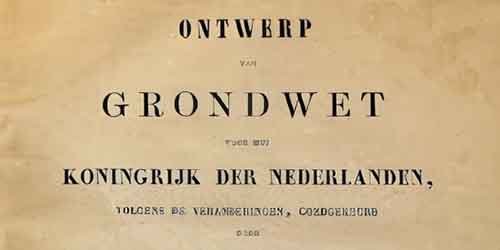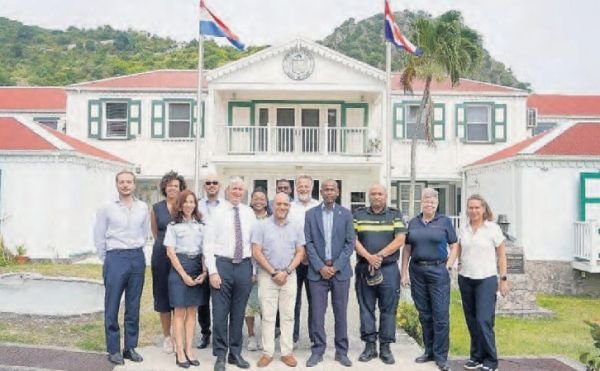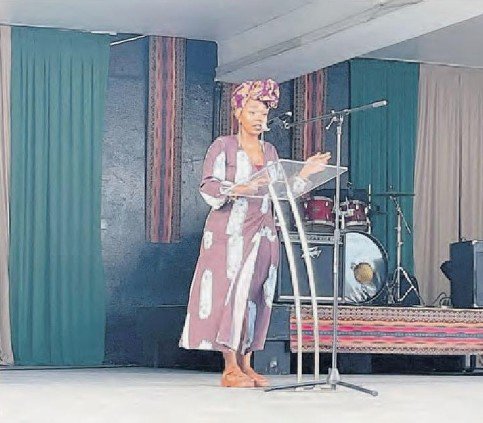- July 4, 2025
Proposed Constitutional Amendment Allows Judicial Review of Laws to Protect Fundamental Rights

Citizens who believe a law violates their constitutional rights may soon be able to challenge it in court—a power currently unavailable under Dutch law. The government has proposed a constitutional amendment to enable judicial review, aiming to strengthen the protection of fundamental rights. Minister Uitermark of the Interior and Kingdom Relations and State Secretary Struycken of Legal Protection have launched an online consultation, inviting the public to provide feedback until August 29. Current Ban on Constitutional Review Under Article 120 of the Dutch Constitution, judges are prohibited from assessing whether laws align with the Constitution. This principle ensures that the legislature, not the judiciary, holds primary responsibility for upholding constitutional compliance. However, the government now seeks to partially lift this ban partially, allowing courts to evaluate laws against core constitutional rights. Expanded Judicial Review for Fundamental Rights The proposed amendment would permit courts to review laws against “classic fundamental rights”, constitutional protections shielding individuals from government overreach. These include: Freedom of expression, education, and religion The prohibition of discrimination For example, if a law is accused of gender-based discrimination, citizens could challenge it in court. The draft legislation specifies all rights subject to judicial review. Stricter Standards for Limiting Rights The amendment also clarifies when and how fundamental rights may be restricted. While some limitations are necessary (e.g., balancing public order concerns with protest rights), current law focuses more on who can impose restrictions rather than justifying them substantively. The revised text would require any restriction to meet stricter criteria, ensuring it: Serves a legitimate purpose Is proportionate (not excessive relative to the goal) Is necessary (no less intrusive alternative exists) Next Steps After the consultation closes on 29 August, the government will refine the proposal based on feedback, seek advice from the Council of State, and submit it to Parliament. Since constitutional changes require a two-stage approval process, the amendment must pass votes in both the current and next cabinet terms before taking effect.

The Netherlands Authority for Consumers & Markets (ACM) has updated maximum electricity tariffs for the Caribbean Netherlands, effective July 1, 2025. The changes reflect adjustments based on higher-than-expected oil prices compared to December 2024 estimates. Average household impacts vary by island: Bonaire and Saba will see monthly increases of approximately $2, while St. Eustatius households will pay about $3 less per month. The differences stem from varying estimation methods used across the islands when tariffs were initially set. The ACM sets annual maximum tariffs each December for electricity production and distribution in the Caribbean Netherlands, with mid-year adjustments made in July to account for fluctuations in fuel prices. Only variable consumption rates change during these adjustments; fixed standing charges remain unchanged. Specific rate changes: Saba: Variable rate increases from $0.3797 to $0.3876 per kWh St. Eustatius: Variable rate decreases from $0.2961 to $0.2837 per kWh Bonaire: Variable rate increases from $0.3136 to $0.3220 per kWh; prepaid tariff rises from $0.6439 to $0.6523 per kWh The Dutch government continues to subsidize grid administration costs to align with European levels by 2025, while also providing energy allowances and purchasing power subsidies through various ministries. RCN

Public Notice: Central Committee Meeting Date: Thursday, July 10th, 2025 Time: 2:00 PM Location: Government Administration Building, Saba The Central Committee of the Public Entity Saba cordially invites the public to attend its upcoming meeting. The agenda is as follows: Agenda Opening Approval of the Agenda Approval of Minutes Central Committee Meeting (CCM) on December 4th, 2024 CCM on February 18th, 2025 CCM on May 21st, 2025 Citizens’ Right to Speak (on agenda points) Oral Question Round Concerning announced questions from the Island Council Incoming Correspondence List (February 11th – May 2nd, 2025, Article 18) None Decision List (Executive Council Meetings): February 26th, 2025: Response to BZK Memorandum on BES Legislative Involvement March 4th, 2025: Saba Renovation Grant – Opening for Applications 2025 March 11th, 2025: Request for Temporary VTH Capacity (PES) March 18th, 2025: Community Development and Culture Policy Plan 2025-2028 February 11th, 2025: Livestock Control 2025-2026 February 18th, 2025: Juliana Sports Field Renovation February 26th, 2025: Erasmus+ Visit to Madeira April 8th, 2025: Exemption “Eilandtoets” for Black Rocks Harbor Project April 15th, 2025: Payment of Outstanding ATM Invoices Island Council Proposal 2025.8: Year Report 2024 Closing Additional Information Public Access to Documents: Agenda documents are available for review at the Office of the Island Registrar (Government Administration Building). Citizen Participation: To address the Central Committee, notify the Island Registrar at least 48 hours prior to the meeting. Observers are welcome. Contact: Akilah M. Levenstone, Island Registrar Email: akilah.levenstone@sabagov.nl Phone: 416-3311 ext. 202 Sincerely, A. M. Levenstone Island Registrar E.O.F. Peterson Chairlady, Central Committee J PUBLIC NOTICE : Island Council Meeting – Public Entity Saba Date: Thursday, July 10th, 2025 Time: Immediately following adjournment of the Central Committee Meeting Location: Government Administration Building, Saba Live Stream: Saba Government YouTube Page The Acting Island Governor of the Public Entity Saba hereby notifies the public of the upcoming Island Council Meeting. Agenda Opening & Announcements Approval of Agenda Approval of Minutes Island Council Meetings: December 4th, 2024 February 20th, 2025 February 25th, 2025 May 22nd, 2025 Oral Question Time (Article 36) Incoming Correspondence & Announcements 5.1 Island Council Correspondence List (May 3rd – June 30th, 2025) 5.2 Executive Council Decision List 5.3 Written Questions to the Executive Council (Article 35) 5.4 Answers to Written Questions (Article 35) Island Council Proposal 2025.8: Year Report 2025 Island Council Proposal 2025.9: Joint Letter Declaring WolBes/FinBES Topics Controversial Motions Closing Additional Information Public Participation: Observers are welcome to attend in person or via the YouTube livestream. Document Access: Agenda materials are available for review at the Government Administration Building upon request. Contact: For inquiries, please direct questions to the Office of the Acting Island Governor. Sincerely, S.A. Nicholson Acting Island Governor Public Entity Saba
- July 3, 2025
Saba’s Longest-Serving Governor Jonathan Johnson Announces End of Tenure After 17 Years

Jonathan Johnson, who has held the office of Gezaghebber (Island Governor) of Saba since 2007, announced on Tuesday that he will not seek reappointment when his current term concludes next year. His decision marks the end of a historic 17-year tenure—the longest in the island’s history—following two reappointments.* Johnson announced on the 17th anniversary of his appointment, quoting Ecclesiastes chapter 3: “There is a time for everything.” In letters addressed to King Willem-Alexander, the State Secretary for Kingdom Relations, the Acting Kingdom Representative, and Saba’s Island and Executive Councils, he expressed deep gratitude for the privilege of serving the island community for nearly two decades. Reflecting on his tenure, Johnson acknowledged both personal and professional milestones—from building a family to enduring the loss of his parents in 2019 and 2021. Despite his impending departure, he reaffirmed his dedication to serving Saba’s best interests in his final year. “I have been extraordinarily fortunate to have the support of family, friends, and the entire Saban community,” he wrote. “I thank you all and look forward to what we can still accomplish together.” With Johnson’s departure confirmed, attention now turns to the succession process for Saba’s next Island Governor.

Senior officials responsible for justice, public order, and safety convened on Saba on June 25 for a key meeting of the “Grote Driehoek” (Grand Triangle), aimed at strengthening coordination among law enforcement and public safety services across Bonaire, St. Eustatius and Saba (the BES islands). The meeting focused on strategic collaboration among the three islands, particularly in light of the limited operational capacity available on each island. Topics on the agenda included border protection, enforcement strategies, and the unique logistical and staffing challenges faced by the small island territories. The Grote Driehoek serves as a vital forum for top officials in the justice and safety sectors to develop integrated responses to cross-island issues, reinforcing regional cooperation beyond individual island jurisdictions. The meeting on Saba was chaired by Attorney General Guillano Schoop, who oversees Curacao, St. Maarten and the BES islands. In attendance were Island Governors Jonathan Johnson (Saba) and John Soliano (Bonaire); Chief Prosecutor for the BES Walter Kupers; Caribbean Netherlands Police Force KPCN Police Chief Alwin Braaf; Coast Guard Support Unit Head Randy Paskel (St. Maarten); and Claudia Toet, Director of Customs and the ‘Pax Authority Caribbean Netherlands, who participated as an agenda member. Participating virtually were Gerhard Smit of the Royal Netherlands Marechaussee KMar; Acting Island Governor of St. Eustatius Sharon Hassell; and Caribbean Coast Guard Director Walter Hansen. The delegations were supported by a team of senior advisors and public safety officials, including Walle Bos (Public Order and Safety, Saba), Miriam Rollan (Prosecution Service OM Carib), Azaria de Groot (Dutch Caribbean Coast Guard), Deanneshury Epistola (Tax Authority and Customs), Terrence Jansen (Cabinet Secretary, Bonaire), and Anna van der Lugt (KPCN Advisor). Johnson described the meeting as critical for resolving regional issues that affect all three islands. “While we hold regular security meetings about Saba, it’s essential to sit down with the other island governors and the heads of shared services like the Prosecutor’s Office and Police. These discussions help address issues that go beyond our individual borders,” he said. Hassell emphasised the urgency of joint solutions to personnel shortages: “We are all facing serious staffing challenges at the police, fire department, customs, and KMar. Working together to solve these is not optional it is essential to keeping our communities safe.” Soliano highlighted a growing concern on his island: “Bonaire is seeing a troubling rise in crime, especially among young offenders. Law enforcement agencies are playing a critical role in addressing this trend. The Grote Driehoek has proven invaluable in reinforcing cooperation, sharing intelligence, and ensuring we take a unified approach across the islands.” Schoop echoed the need for cohesion: “The unique challenges of the Caribbean Netherlands — limited capacity, geographic isolation, and small-scale operations — demand a unified and strategic response. The Grote Driehoek provides exactly that: a place where decision-makers and operational leaders can coordinate, align priorities, and build stronger collective resilience.” As regional challenges evolve, the Grote Driehoek continues to be a cornerstone of safety and justice coordination across the Caribbean Netherlands, reinforcing inter-island partnerships and shared responsibility for public security. The Daily Herald.
- July 2, 2025
BES electricity tariffs changed

Dutch competition authority ACM has reset the maximum tariffs for electricity distribution in the Caribbean Netherlands. As of July 1, the average household in Bonaire and Saba will now pay about US $2 more per month, while the average household in St. Eustatius will pay about $3 less. “The changes are due to the increased oil price compared to estimates made by ACM late last year when setting the tariffs,” ACM said in a press release. Every year in December, ACM sets the maximum tariffs for the production and distribution of electricity in the Caribbean Netherlands for the new year. Energy suppliers set the tariffs they charge residents and businesses based on these maximum tariffs. lb take fluctuating fuel prices into account, ACM adjusts the variable tariff for consumption of electricity, if necessary, from 1 July. The maximum standing charge does not change in this context. The Ministry of Climate and Green Growth subsidises the cost of the administration of the electricity grid (the standing charge) to the average European Dutch level by 2025. An energy allowance and an additional purchasing power subsidy are also available from the Ministry of Home Affairs and Kingdom Relations and the Ministry of Social Affairs and Employment. Bonaire For Bonaire, the maximum variable usage rate increases from $0.3136/kilowatt-hour (kWh) to $0.3220/kWh. The maximum “pagabon” tariff (prepaid) will increase from $0.6439/kWh to $0.6523/kWh, before application of subsidies on the standing charge. For the consumption of an average household on Bonaire, this means an increase of about $2 per month. St. Eustatius For St. Eustatius, the maximum variable usage rate drops from $0.2961/kWh to $0.2837/kWh. For the consumption of an average household on St. Eustatius, this means a decrease of about $3 per month. Saba For Saba, the maximum variable usage rate increases from $0.3797/kWh to $0.3876/kWh. For the consumption of an average household on Saba, this means an increase of about $2 per month. The Daily Herald.
- July 2, 2025
Saba celebrates Emancipation Day

Saba celebrated Emancipation Day 2025 under the theme “We know because they spoke, generations remember”. As part of the pre-Emancipation Day celebrations on Monday evening Saba’s Heritage Center hosted a screening of the first episode in the docu-series “Awo Now Nu”, which features young voices from across the six Dutch Caribbean islands, including Saba youth. Directed by Roland Colastica, the docu-series explores how today’s youth are engaging with and interpreting the legacy of the transatlantic slave trade. “We are proud to see our own young Sabans featured in this groundbreaking product,” said Saba Heritage Center Director Shari-fa Balfour. Balfour said the evening was not only to commemorate a historic turning point in shared history, “but also to reflect on deep legacies of resistance, resilience and cultural expression that continue to shape our lives and identities today.” Speaker for the evening was cultural anthropologist Dr. Gregory Richardson, who presented a public lecture on his research into how calypso and soca function as forms of storytelling and resistance in the Dutch Caribbean, particularly in connection with emancipation. His presentation explored how traditional music and performances served as vital tools of expression both then and now. The main event to commemorate Emancipation Day, at Princess Juliana Sports Field on Tuesday evening, included speeches, poetry, song and dance by Saban youth and elderly groups. Guest speaker Nathania Engelhardt, co-founder and coach at Debate Education Foundation Curacao, addressed why it was important to recognise Emancipation Day. “It’s not just to look back, but to look within and to look ahead,” she said. “If we don’t keep our story alive, we will lose a part of our identity, that thing that makes us us.” She told those gathered that they each had a role to play, whether it be educators or politicians, on keeping the discussion alive. “We have to ask ourselves `what kind of ancestors do we want to become.’ Engelhardt facilitated a youth forum on Tuesday morning that focused on local heritage and how to keep it relevant. The community is invited to view the temporary exhibition at the centre, which was donated by the National Slavery Museum of the Netherlands. The exhibition features stories about different persons and objects that symbolise slavery, emancipation and freedom in the former Dutch colonies. The Daily Herald.

Last November, a group of teenage boys from Saba embarked on a transformative journey, earning their PADI Open Water Diver certification through a partnership between Saba Reach Foundation (SRF) and Sea & Learn Foundation (SLF). The program, part of SRF’s Replay initiative, provided hands-on learning and career exposure for youth outside traditional education. Supported by the Dutch-funded Strengthening Families Together program, SLF expanded its Youth Environmental Leadership Program (YELP) to include scuba diving, fostering confidence, teamwork, and career opportunities in the marine industry. Over four months, the teens trained under instructors Jet Kramer and Jarno Knijff, culminating in all five students and one mentor earning their certifications. In June, the group traveled to St. Maarten for SRF’s first Annual Away Trip, where they sailed with Aqua Mania Adventures, learned from marine professionals, and explored the ecologically vital Simpson Bay Lagoon by kayak. The experience broadened their horizons, reinforcing that with support and opportunity, they can build a brighter future, whether on Saba or beyond. This initiative was made possible by Samenwerkende Fondsen, Oranje Fonds, and Kinderpostzegels. Together, SRF and SLF are proving that collaboration creates a lasting impact. Sea&Learn Foundation

The Netherlands will launch a new grant program on August 11, 2025, providing funding for social initiatives related to the transatlantic history of slavery. This program represents a significant step in addressing the legacy of slavery and its ongoing impact on communities today. Program Overview The initiative stems from the Dutch government’s formal apology for the Netherlands’ slavery past, delivered on December 19, 2022. As part of this commitment, €200 million was allocated for recognition, awareness, and healing initiatives, with €100 million designated specifically for civil society projects. The grant program will operate across multiple regions: European Netherlands Caribbean part of the Kingdom Suriname (program still in preparation) Grant Structure and Timeline The program runs from 2025 to 2028 and features eight application rounds offering four different types of grants: First Round (Starting August 11, 2025): Organizational strengthening grants €5,000 for European Netherlands organizations USD $10,000 for Caribbean Kingdom organizations Subsequent Rounds: Additional funding will be available for projects focused on: Understanding slavery’s legacy and addressing ongoing consequences Processing the history of slavery Promoting knowledge and awareness Recognition and commemoration efforts Community-Centered Approach The program was developed through extensive consultation with affected communities. In 2023, the Ministry of the Interior and Kingdom Relations conducted conversations and dialogue sessions throughout the Kingdom to ensure the program addresses real community needs. Key features include: Deliberately simple application process Accessibility for smaller organizations Information sessions planned for all participating regions Implementation by ‘Uitvoering Van Beleid’ (Ministry of Social Affairs and Employment) Minister’s Statement Minister Uitermark emphasized the program’s dual focus: “When it comes to the history of slavery, it’s very important to reflect on the past, but also to look ahead. It’s crucial to collectively build awareness about the history of slavery, reflect on how we deal with it today, and work towards a shared future.” Regional Implementation While programs for the European Netherlands and Caribbean Kingdom are ready to launch, the Suriname component remains in development as officials work to identify appropriate local implementing partners and coordinate with Surinamese government procedures. The €100 million civil society fund is divided equally among the three regions, ensuring comprehensive support across all affected areas. This grant program represents a concrete step in transforming the 2022 governmental apology into meaningful action, supporting community-led initiatives that address the lasting effects of slavery while promoting healing and awareness. More information can be found HERE. RCN

The Public Entity Saba is pleased to announce a major milestone in its School Housing Project for St. Johns: demolition of the existing gymnasium will commence this summer. This critical first phase will enable the construction of a state-of-the-art sports complex and a new Technical School in St. Johns. Project Partnership and Vision This project reflects the Public Entity’s commitment, in partnership with the Ministry of Education, Culture and Science (OCW) and the Ministry of Health, Welfare and Sport (VWS), to provide modern, safe, and inspiring facilities for educational and athletic development on the island. Following a competitive public tender process launched earlier this year, the government is finalizing its agreement with Ross Contracting Services. The contractor’s initial phase involves safely demolishing the current gymnasium to prepare the site for the construction of the new facilities. Ensuring Uninterrupted Physical Education The Saba Sports Department has closely coordinated with local schools and physical education teachers to inventory and store all gymnasium equipment, ensuring that PE classes continue uninterrupted. Beginning with the new school year, classes will temporarily relocate to alternative facilities while construction proceeds. Schools will communicate specific arrangements directly to students and parents. The Department of Public Health & Sport has already upgraded existing sports facilities in The Bottom to accommodate increased usage during this transitional period. Sustainable Demolition Approach Before demolition, crews carefully removed and preserved all reusable materials from the gymnasium for use in future projects, demonstrating the Public Entity’s commitment to sustainability. Working in partnership with the Waste Facility, all demolition materials will be properly separated, managed, and disposed of using environmentally responsible methods. Minimizing Community Impact By scheduling demolition during summer recess, the project prioritizes student safety while minimizing educational disruption. The Public Entity recognizes that demolition activities may temporarily inconvenience surrounding residents and the broader St. Johns community and will implement measures to reduce disturbances wherever possible. Important Notice for Community Members To protect personal property during demolition activities, community members are asked to avoid parking vehicles in the front or rear school parking areas throughout the summer break. Looking Forward The gymnasium demolition represents a pivotal first step toward providing Saba’s schools, sports organizations, and community members with modern, safe, and inspiring facilities for physical education and recreational activities for years to come. For inquiries or additional information about this project, please get in touch with the Department of Spatial Planning and Infrastructure.
 Saba News News and Information from Saba Island, Dutch Caribbean
Saba News News and Information from Saba Island, Dutch Caribbean
